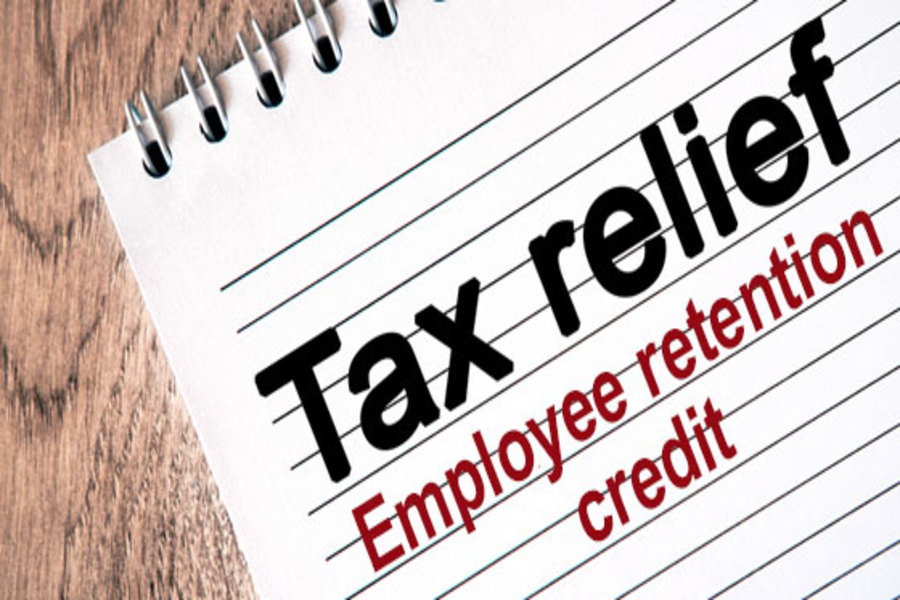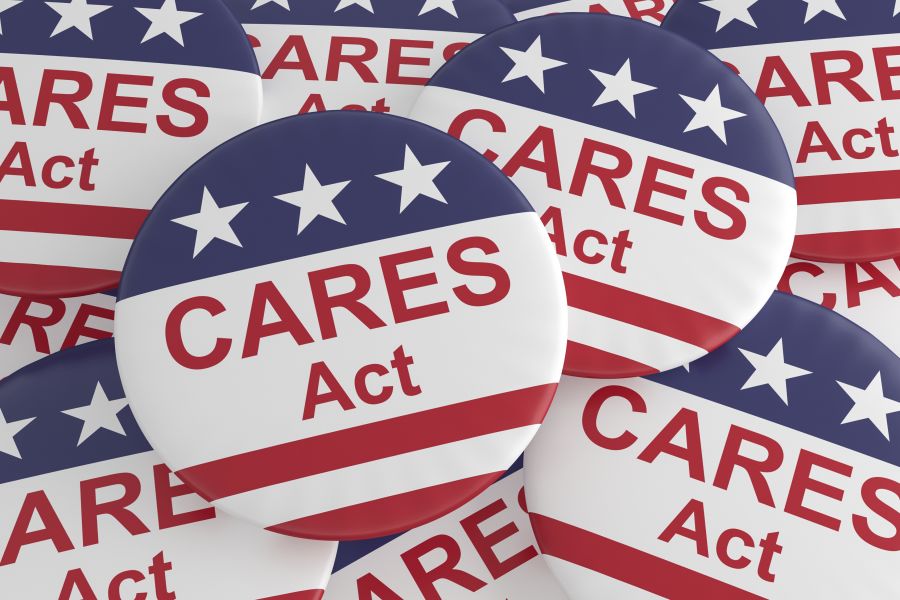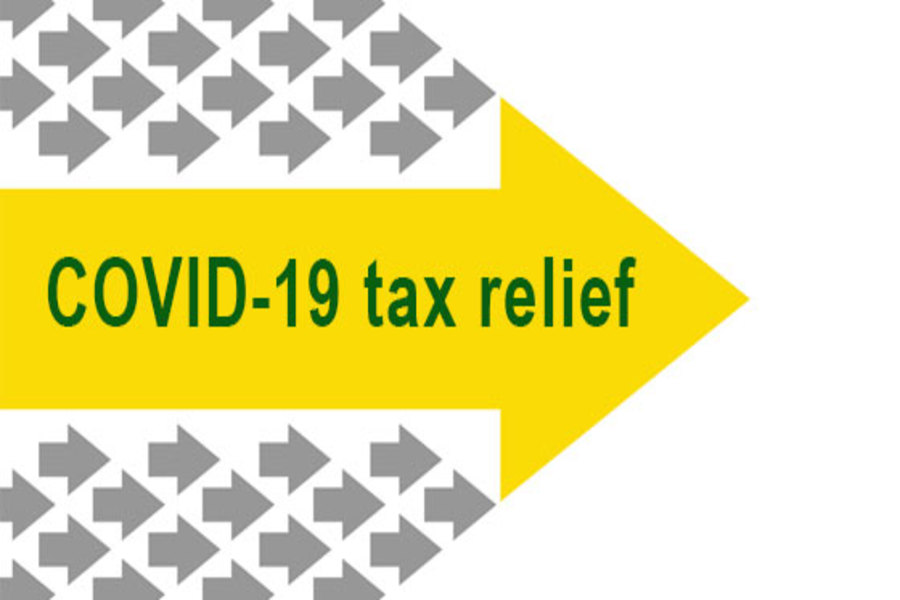The Small Business Administration (SBA), in consultation with the Department of the Treasury, has issued guidance to assist businesses in calculating their payroll costs for purposes of determining the amount of a Paycheck Protection Program (PPP) loan businesses can apply for. Borrowers and lenders may rely on the guidance provided in this document as SBA’s interpretation of the CARES Act and of the Paycheck Protection Program Interim Final Rules. The U.S. government will not challenge lender PPP actions that conform to this guidance and to the PPP Interim Final Rules and any subsequent rulemaking in effect at the time. Questions answered in the guidance related to Schedule C taxpayers are as follows: Self-Employed with No Employees Question: I am self-employed and have no employees, how do I calculate my maximum...

On its website, IRS has issued FAQs on the deferral of the deposit and payment of the employer's share of Social Security taxes and self-employed individuals to defer payment of certain self-employment taxes that is provided by the Coronavirus, Aid, Relief and Economic Security Act (CARES Act). These employment tax deposit deferral FAQs will be updated to address additional questions as they arise. 1. What deposits and payments of employment taxes are employers entitled to defer? What may be deferred under the CARES Act are the taxes imposed under §3111(a) and, for Railroad employers, so much of the taxes imposed under §3221(a) as are attributable to the rate in effect under §3111(a) (collectively referred to as the "employer's share of social security tax"). But see FAQ 4 regarding...
The IRS has issued guidance providing employment tax deposit relief for employers that are entitled to the refundable tax credits provided under two laws passed in response to the Coronavirus (COVID-19) pandemic. The two laws are the Families First Coronavirus Response Act, which was signed on March 18, 2020, and the Coronavirus Aid, Relief, and Economic Security Act (CARES) Act, which was signed on March 27, 2020. Employment tax penalty basics The tax code imposes a penalty for any failure to deposit amounts as required on the date prescribed, unless such failure is due to reasonable cause rather than willful neglect. An employer’s failure to deposit certain federal employment taxes, including deposits of withheld income taxes and taxes under the Federal Insurance Contributions Act (FICA) is generally subject to...
Like the coronavirus (COVID-19) pathogen itself, incidents of COVID-19 fraud are surging and financial losses are piling up. The Federal Trade Commission (FTC) reports that the number of complaints about new COVID-19 fraud schemes doubled in just one recent week. As of March 31, 2020, losses attributed to the outbreak stood at $5.9 million. Here are some of the scams criminals are perpetrating. Bad medicine Although travel and vacation company disputes top the FTC’s most recent list of COVID-19 complaints, most of these relate to cancellations and refunds, not fraud. Much more worrying for American consumers are the many online vendors hawking suspect treatments and tests. On March 9, the FTC sent warning letters to seven companies advertising everything from virus-fighting tea to essential oils. The Commission...
The recently enacted Coronavirus Aid, Relief, and Economic Security (CARES) Act provides a refundable employee retention tax credit for 50% of wages paid by eligible employers to certain employees during the COVID-19 pandemic. The employee retention credit is available to employers, including nonprofit organizations, with operations that have been fully or partially suspended as a result of a government order limiting commerce, travel or group meetings. The credit is also provided to employers who have experienced a greater than 50% reduction in quarterly receipts, measured on a year-over-year basis. IRS ISSUES FAQs The IRS has now released FAQs about the credit. Here are some highlights. How is the credit calculated? The credit is 50% of qualifying wages paid up to $10,000 in total. So the maximum credit for an...
On March 27, the President signed into law the Coronavirus Aid, Relief, and Economic Security Act (CARES Act, PL 116-136). Among other provisions, the CARES Act contains several new SBA loan and debt relief programs, including the: Paycheck Protection Program, Economic Injury Disaster Loans, and SBA debt relief, for the self-employed, independent contractors, and small and large businesses suffering economic damage from the Coronavirus (COVID-19) outbreak. The Small Business Administration (SBA) has a new website called Coronavirus (COVID-19): Small Business Guidance and Loan Resources. The new website includes information on the aforementioned new SBA programs that were enacted as part of the CARES Act, as well as information on the following SBA Express Bridge Loans and other guidance/resources: SBA Express Bridge Loan Pilot Program SBA Economic Injury...
This post provides expanded coverage of the CARES Act, Congress’s gigantic economic stimulus package that the President signed into law on March 27, 2020. PROVISIONS AFFECTING INDIVIDUALS Recovery rebates for individuals To help individuals stay afloat during this time of economic uncertainty, the government will send up to $1,200 payments to eligible taxpayers and $2,400 for married couples filing joints returns. An additional $500 additional payment will be sent to taxpayers for each qualifying child dependent under age 17 (using the qualification rules under the Child Tax Credit). Rebates are gradually phased out, at a rate of 5% of the individual’s adjusted gross income over $75,000 (singles or marrieds filing separately), $122,500 (head of household), and $150,000 (joint). There is no income floor or ‘‘phase-in’’—all recipients who are under...
On 3/27/20, President Trump signed into law another coronavirus (COVID-19) law. The CARES Act provides more tax relief for businesses employers. Here are some of the tax-related provisions in the Coronavirus Aid, Relief, and Economic Security Act. Employee retention credit The new law provides a refundable payroll tax credit for 50% of wages paid by eligible employers to certain employees during the COVID-19 crisis. Employer eligibility. The credit is available to employers with operations that have been fully or partially suspended as a result of a government order limiting commerce, travel or group meetings. The credit is also provided to employers that have experienced a greater than 50% reduction in quarterly receipts, measured on a year-over-year basis. The credit isn’t available to employers receiving Small Business Interruption Loans under...
Businesses across the country are being affected by the worldwide pandemic. Fortunately, Congress recently passed Coronavirus tax relief for small businesses. In a separate development, the IRS has issued guidance allowing taxpayers to defer any amount of federal income tax payments due on April 15, 2020, until July 15, 2020, without penalties or interest. New law On March 18, the Senate passed the House's Coronavirus bill, the Families First Coronavirus Response Act. President Trump signed the bill that day. It includes: Paid leave benefits to employees, Tax credits for employers and self-employed taxpayers, and FICA tax relief for employers. Tax filing and payment extension In Notice 2020-18, the IRS provides relief for taxpayers with a federal income tax payment due April 15, 2020. The due date for making federal income...
Are you an employer who owns a business where tipping is customary for providing food and beverages? You may qualify for a tax credit for businesses involving the Social Security and Medicare (FICA) taxes that you pay on your employees’ tip income. How the credit works The FICA credit applies with respect to tips that your employees receive from customers in connection with the provision of food or beverages, regardless of whether the food or beverages are for consumption on or off the premises. Although these tips are paid by customers, they’re treated for FICA tax purposes as if you paid them to your employees. Your employees are required to report their tips to you. You must withhold and remit the employee’s share of FICA taxes, and...











